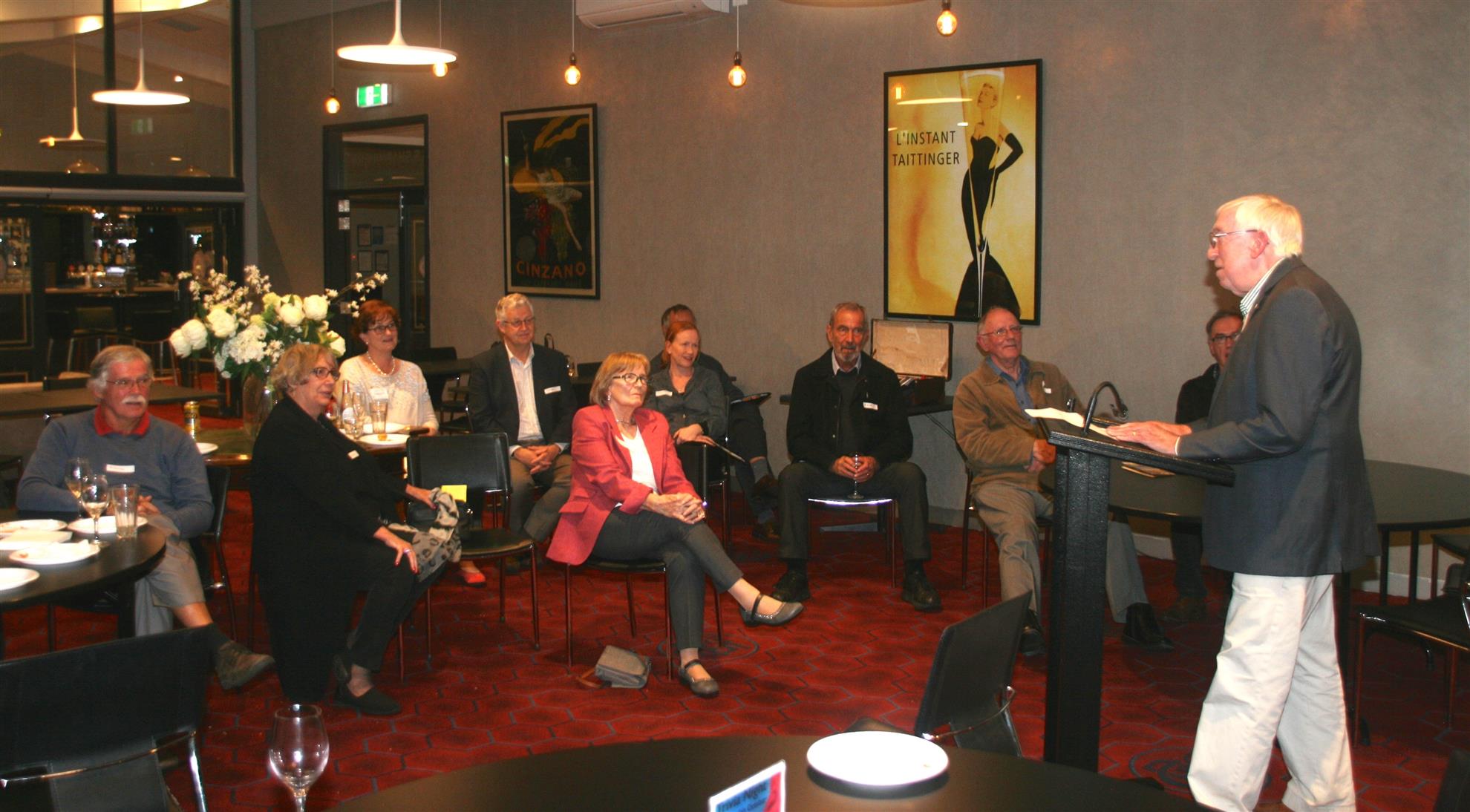Our fifth meeting of the month at Grace Park Club was well-attended, and the audience was informed and entertained by John McCaskill of Canterbury Rotary.
of the month at Grace Park Club was well-attended, and the audience was informed and entertained by John McCaskill of Canterbury Rotary.
 of the month at Grace Park Club was well-attended, and the audience was informed and entertained by John McCaskill of Canterbury Rotary.
of the month at Grace Park Club was well-attended, and the audience was informed and entertained by John McCaskill of Canterbury Rotary.John’s interest in bees started with a David Attenborough program, which highlighted the decline in bee population and the impact a decline in bees and other pollinators would have on our food production and security, and consequently, our economy.
John has engaged an enthusiastic group of Rotarians, beekeepers, and others in a committee under the banner: ‘Rotarians for Bees’. This group is now recognised as part of ESRAG, the environmental sustainable Rotary action group. https://www.esrag.org/rotarians-bees

John described how honey bee populations worldwide are declining under the combined impact of disease (the varroa mite carries a disease that destroys hives and bees), pesticides, climate change, and habitat loss. This poses a huge threat to human food security. While we are all familiar with the honey bee, there are 1,500 types on native bees in Australia, and other pollinators include bats, cockroaches and butterflies.
Rotarians can assist with research and education programmes, as well as hands-on projects such as tree-planting. John encouraged Rotarians to either keep bees and join a bee club, or to have a “bee hotel”.
The Rotarians for Be es Committee is preparing a strategic action plan including appropriate messages for the community, using social media, contact with clubs, articles in RDU, a speakers’ bank, and developing a plan for contacting unregistered beekeepers and investigating training for unregistered beekeepers. World Bee Day is 29th March, and John described plans to raise awareness in Canberra, and a Rotary meeting on 12th November at Greenacres Golf Club to spread information on the topic. Information on this to follow.
es Committee is preparing a strategic action plan including appropriate messages for the community, using social media, contact with clubs, articles in RDU, a speakers’ bank, and developing a plan for contacting unregistered beekeepers and investigating training for unregistered beekeepers. World Bee Day is 29th March, and John described plans to raise awareness in Canberra, and a Rotary meeting on 12th November at Greenacres Golf Club to spread information on the topic. Information on this to follow.
 es Committee is preparing a strategic action plan including appropriate messages for the community, using social media, contact with clubs, articles in RDU, a speakers’ bank, and developing a plan for contacting unregistered beekeepers and investigating training for unregistered beekeepers. World Bee Day is 29th March, and John described plans to raise awareness in Canberra, and a Rotary meeting on 12th November at Greenacres Golf Club to spread information on the topic. Information on this to follow.
es Committee is preparing a strategic action plan including appropriate messages for the community, using social media, contact with clubs, articles in RDU, a speakers’ bank, and developing a plan for contacting unregistered beekeepers and investigating training for unregistered beekeepers. World Bee Day is 29th March, and John described plans to raise awareness in Canberra, and a Rotary meeting on 12th November at Greenacres Golf Club to spread information on the topic. Information on this to follow.We thank John McCaskill for his informative talk, which included a demonstration of the “waggle dance”, when bees dance to show other bees where the nectar is situated.